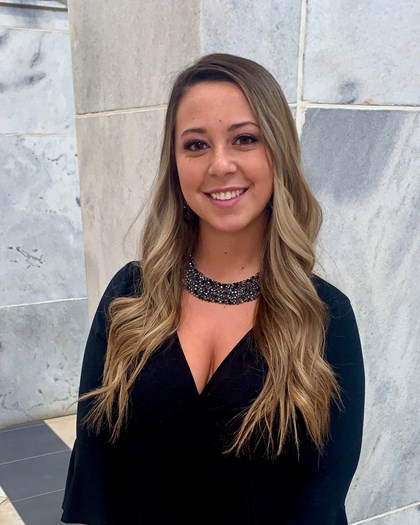Medical Laboratory Science (BS / MS)

Allison Fritz
Biomedical Laboratory Diagnostics
“I will always remember how fortunate I was to have professors that were so invested in our success and competency as health care providers while at WVU.”
A medical laboratory scientist is a professional who is qualified through academic and applied science education and training to provide service, research, and management in laboratory settings, including hospitals, clinics, pharmaceutical laboratories, and more. Medical laboratory scientists discover the presence or absence of disease in blood and body fluids, and provide data that help healthcare providers determine the best treatment for the patient. Although they are not often personally involved with patients, clinical laboratory scientists play a crucial role in the process of providing personalized care. They generate vitally important data for identifying and treating cancer, heart disease, diabetes and many other health conditions.
Medical laboratory scientists also perform specimen collection and processing, maintain instrumentation, and examine and analyze blood and body fluids. Using sophisticated biomedical instrumentation and technology, as well as highly skilled manual techniques, clinical laboratory professionals:
- Identify infective microorganisms
- Analyze the chemical constituents of body fluids
- Identify and monitor blood-clotting abnormalities
- Prepare blood components for patient therapy
- Test blood for drug levels to measure the efficacy of particular treatments
- Evaluate test results for accuracy and help interpret them for physicians
- Conduct research and evaluate new test methods
- Advance into management positions
Prospective Students
Interested in pursuing a career in medical laboratory science? Explore alumni profiles to see what our grads are doing post-graduation, or review the links below to find the best fit for you!
- Prospective students who are applying for direct admission from high school or who are current college students interested in transferring or applying should visit our Bachelor of Science (BS) future students page.
- Prospective students who have completed or will complete a bachelor's degree in a discipline other than medical laboratory science should visit our Master of Science (MS) future students page.
Careers
For more information on medical laboratory science as a career, please visit our career opportunities page, or learn more via the American Society for Clinical Laboratory Science.